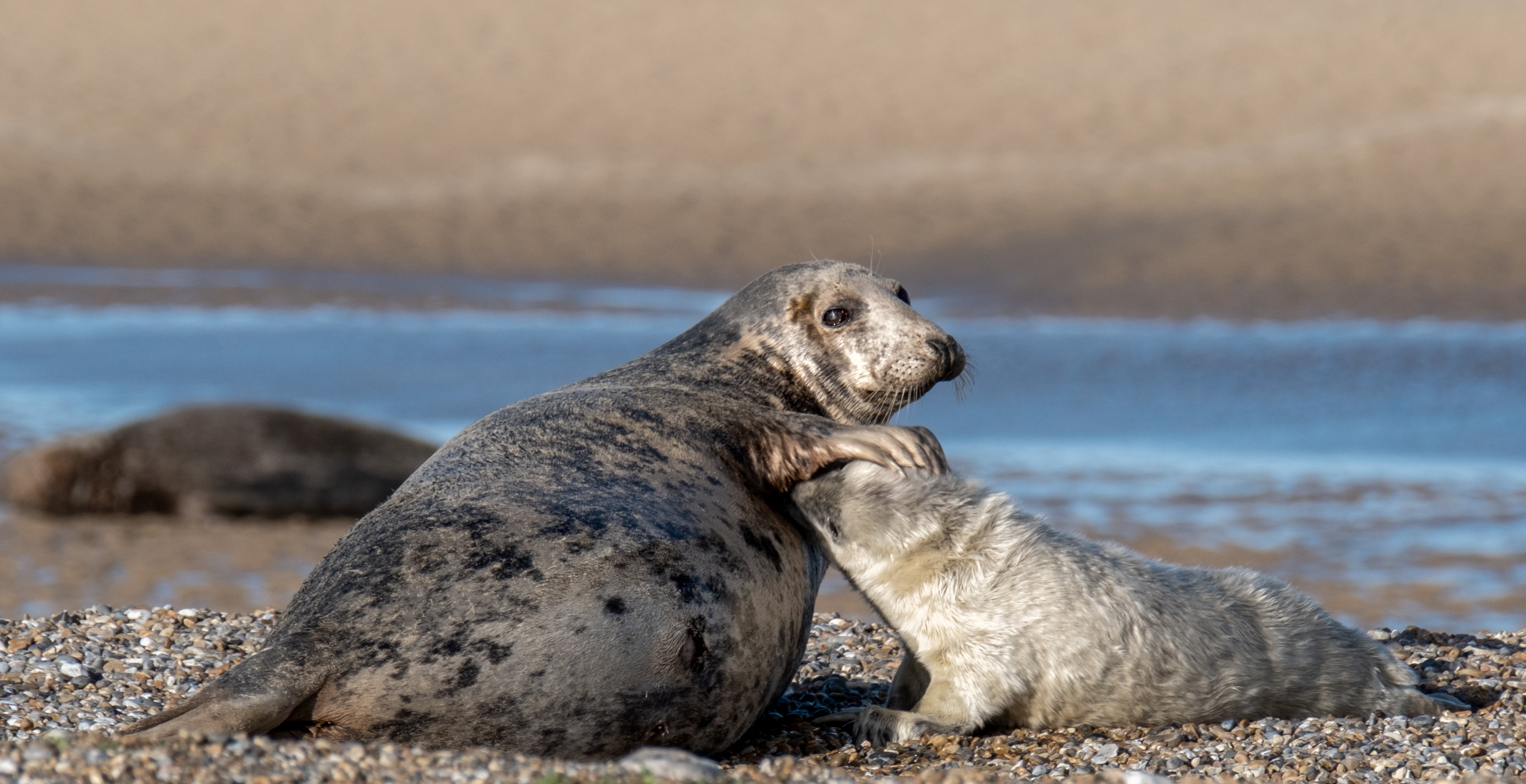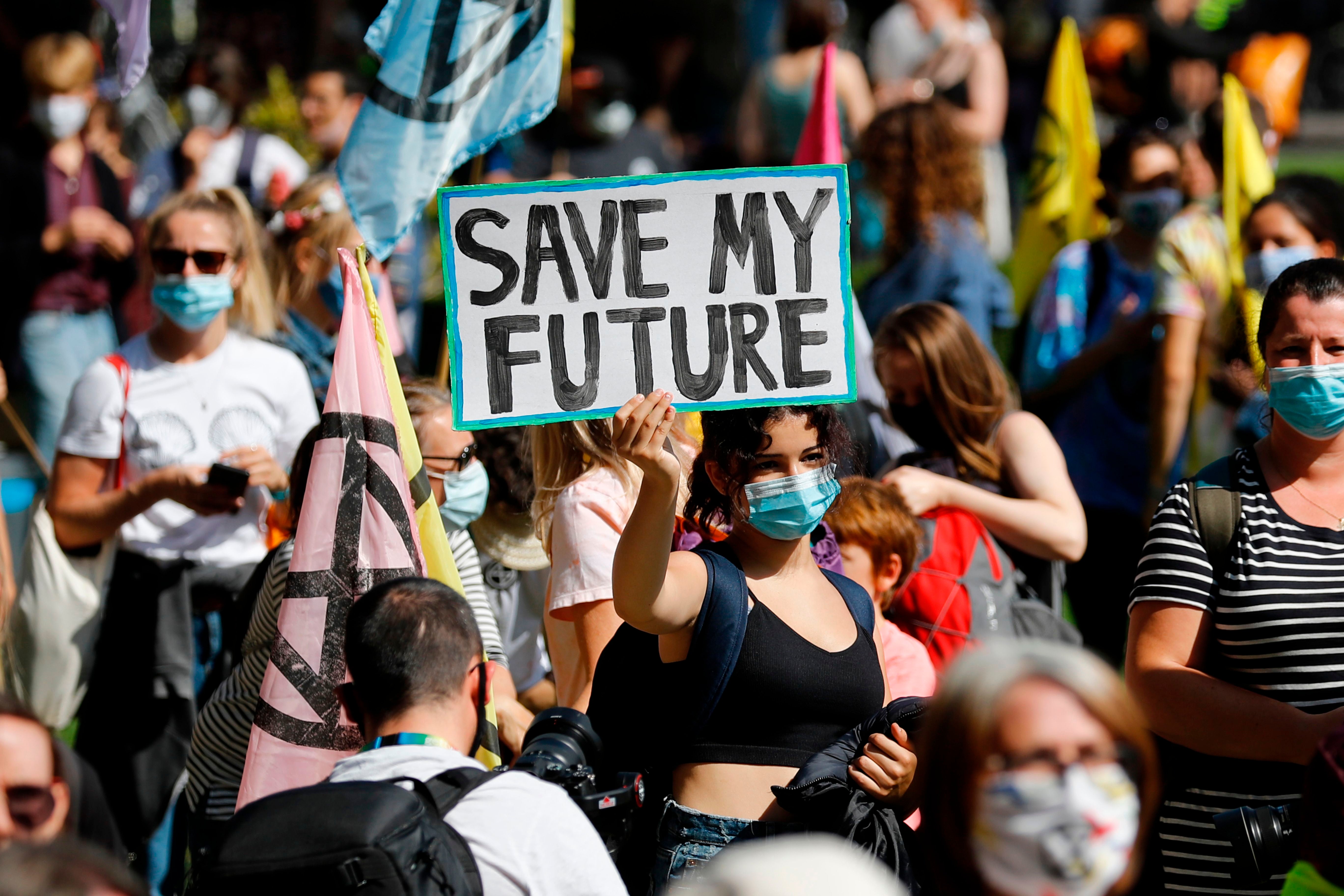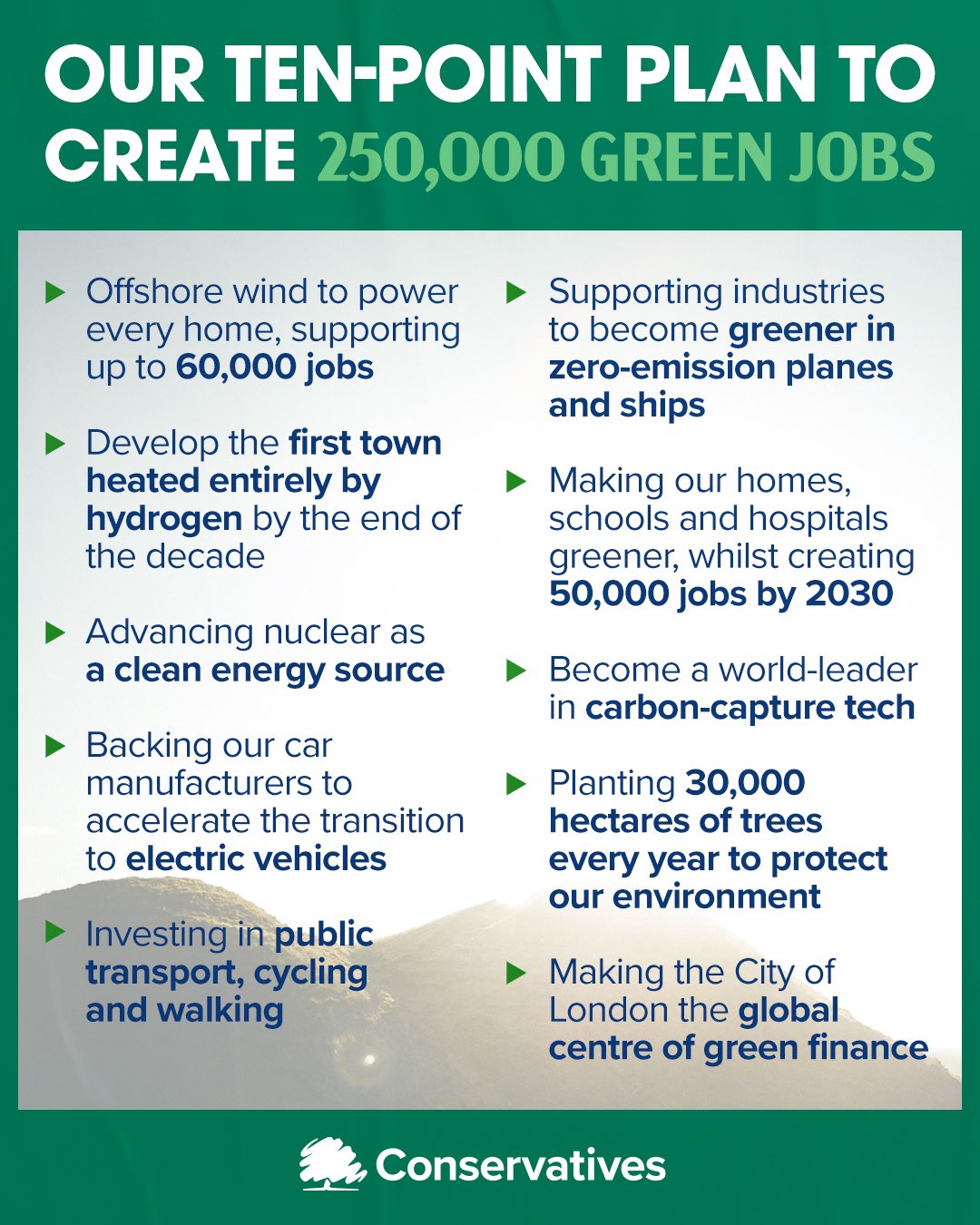UK climate plan: Boris Johnson’s ‘green industrial revolution’ labelled ‘inadequate’
Follow the latest updates
Your support helps us to tell the story
From reproductive rights to climate change to Big Tech, The Independent is on the ground when the story is developing. Whether it's investigating the financials of Elon Musk's pro-Trump PAC or producing our latest documentary, 'The A Word', which shines a light on the American women fighting for reproductive rights, we know how important it is to parse out the facts from the messaging.
At such a critical moment in US history, we need reporters on the ground. Your donation allows us to keep sending journalists to speak to both sides of the story.
The Independent is trusted by Americans across the entire political spectrum. And unlike many other quality news outlets, we choose not to lock Americans out of our reporting and analysis with paywalls. We believe quality journalism should be available to everyone, paid for by those who can afford it.
Your support makes all the difference.Boris Johnson’s new 10-point climate action plan, which he launched on Tuesday evening, has been labelled “inadequate”, with some critics suggesting responses to the emergency have been stronger in European countries such as France and Germany.
Green Party co-leader Sian Berry tweeted to say the strategy was “inadequate”, and shadow secretary of state for energy and climate change, Ed Miliband, said: “The funding in the government's long-awaited 10-point plan doesn't remotely meet the scale of what’s needed … it pales in comparison to the tens of billions committed by France and Germany”.
Meanwhile, Joe Biden is being called out for handing one of the Democratic Party’s top recipients of fossil fuel industry money a top White House position - focusing in part on climate issues.
Representative Cedric Richmond, a Democrat from Louisiana, has received about £256,500 from donors in the oil and gas industry in his time. He has also repeatedly broken with Democrats on major climate and environmental votes.
See below for how our live coverage unfolded.
Biden under fire for giving fossil fuel ally top job
Joe Biden is being called out for handing one of the Democratic Party’s top recipients of fossil fuel industry money a top White House position focusing in part on climate issues.
Representative Cedric Richmond, a Democrat from Louisiana, will lead the White House Office of Public Engagement, where Politico reports he is “expected to serve as a liaison with the business community and climate change activists”.
During his 10 years in Congress, Mr Richmond has received roughly $341,000 (£256,505) from donors in the oil and gas industry — the 5th highest total among House Democrats, according to reports in the Daily Poster. The sum includes corporate political action committee donations of $40,000 (£30,089) from oil giant ExxonMobil.
Mr Richmond has also repeatedly broken with Democrats on major climate and environmental votes. During the climate crisis that has battered Louisiana (his home state has seven of the 10 most air-polluted census tracts in the country), he has joined with Republicans to vote to increase fossil fuel exports and promote pipeline development. He also voted against Democratic legislation to place pollution limits on fracking.
“Cedric Richmond has taken big money from the fossil fuel industry, cosied up w/oil and gas, & stayed silent while polluters poisoned his own community,” the Sunrise Movement, a grassroots group pushing for a Green New Deal, wrote on Twitter on Tuesday. “How will young people & frontline communities trust our voices will be heard louder than Big Oil in a @JoeBiden administration?”
Mr Biden has promised a $1.7tn (£1.3tn) plan to combat climate change, and his making the climate crisis one of his campaign’s top priorities is thought to be a major reason he won the presidential election.
The president-elect is yet to comment on the backlash surrounding Mr Richmond’s appointment.
England’s largest grey seal colony to welcome 4,000-strong baby boom
It’s not all bad news as the largest grey seal colony in England is expecting a major baby boom of 4,000 new arrivals this year, the National Trust has said.
Rangers monitoring the colony at Blakeney National Nature Reserve in Norfolk are having to rethink the way they count the numbers of pups born at the breeding ground due to how much it is growing.
Low levels of disturbance and mortality of the pups at the site in the first few weeks of life gave the colony its best chance at increasing numbers, reports Kate Ng:

Largest grey seal colony in England to welcome 4,000-strong baby boom
Colony’s exponential growth prompts National Trust to update method of counting pups
Dalmatian pelicans could return to British skies after 2,000 years
The Independent’s Harry Cockburn has been investigating whether Dalmatian pelicans - the largest pelican species in the world - could be brought back to the UK after they were hunted to extinction during the Roman occupation of Britain.
The government, The Woodland Trusts and the RSPB have said they could support it “in principle”, but only if the rewilding process is carried out carefully.
Read the fascinating report here:

One of the world’s largest flying birds could return to UK under ambitious rewilding plans
Hunted to extinction in Britain during the Roman occupation, species with wingspan rivalling the largest albatrosses could soon be back
How UK’s ban of fossil-fuel vehicles compares to other countries
The UK will ban the sale of new petrol and diesel cars and vans from 2030, five years earlier than previously planned, as part of what Boris Johnson is calling a “green revolution” to cut emissions to net zero by 2050.
Britain last year became the first G7 country to set in law a net zero emission target by 2050, which will require momentous changes in the way Britons travel, use energy and eat.
Here’s how the move compares to other countries or regions that have previously pitched the idea of banning fossil-fuel based vehicles:
United States
California will ban the sale of new gasoline-powered passenger cars and trucks starting in 2035, the state’s governor Gavin Newsom said in September.
Canada
The Canadian province of Quebec said this week it would ban the sale of new gasoline-powered passenger cars from 2035.
European Union
EU environment ministers struck a deal on 23 October to make the bloc’s 2050 net zero emissions target legally binding, but left a decision on a 2030 emissions-cutting target for leaders to discuss in December.
Germany
German cities started to introduce bans on older diesel vehicles that emit higher amounts of pollutants than from late 2018.
Norway
Norway, which relies heavily on oil and gas revenues, aims to become the world's first country to end the sale of fossil fuel-powered cars, setting a 2025 deadline. Fully electric vehicles now make up about 60 per cent of monthly sales in Norway.
China
In 2017 China begun studying when to ban the production and sale of cars using traditional fuels but did not specify when it might be introduced. Sales of new energy vehicles (NEV) will make up 50 per cent of overall new car sales in China, the world’s biggest auto market, by 2035, an industry official said last month.
India
Last year, India's central think-tank asked scooter and motorbike manufacturers to draw up a plan to switch to electric vehicles. The think-tank also recommended that only electric models of scooters and motorbikes with engine capacity of more than 150cc must be sold from 2025, sources told Reuters.
Graphic shows long road ahead for UK’s e-mobility goal

Is the government putting its money where its mouth is on green investment?
The Independent’s economics editor, Ben Chu, asks whether the government is really prepared to spend the money it is pledging to in order to properly fight the climate crisis.
“Critics argue that much of the £12bn in state cash announced by Boris Johnson as part of his 10-point plan to decarbonise the UK economy by 2050 is not new – and that even the headline pledges are grossly insufficient.
“Are they right? Or do the sums actually add up? Broadly the critics are correct that the numbers being talked about on Wednesday to replace domestic gas boilers, install new wind power capacity and create new zero-carbon public transport systems and so on fall well short of what will ultimately be needed.
“It hardly needs to be said that £12bn in this context barely scratches the surface.”
Read his thinking in full here:

Is the government putting its money where its mouth is on green investment?
Broadly the critics are correct that the numbers being talked about on Wednesday fall well short of what will ultimately be needed - but the Spending Review later this month is an opportunity for the government to fill in some of the big gaps, says Ben Chu
Greenpeace demands KLM aid be halted after airline fails to ‘reduce emissions’
Greenpeace has asked a Dutch court to block the 3.4bn euros (£3bn) of state aid previously granted to the Dutch arm of Air France-KLM, arguing the government had failed to force the ailing airline to make its business more sustainable.
“Climate change is dangerous and is happening now,” Greenpeace lawyer Frank Peters said at a summary hearing at the district court of The Hague. “The government has missed the chance to deal with pollution caused by aviation now.”
After months of negotiations, the Dutch government in June agreed to offer KLM an aid package to keep it flying through the coronavirus crisis. The bailout terms include new environmental and noise pollution targets for KLM which were insisted upon by the Dutch parliament, as well as cost cuts. These order KLM to cut its greenhouse gas emissions per passenger in half by 2030 relative to their 2005 levels.
But Greenpeace said this will not reduce total emissions, as long as the number of passengers continues to grow. “The state should take every opportunity to cut emissions,” Mr Peters said. "Delaying this will lead to a subsidised increase of emissions."
But the government said its conditions were in line with international aviation agreements, while stricter demands could easily bring down the airline it is trying to save. “An order to stop the support straightaway will also hurt the company's ability to borrow money and it is difficult to see how this would not risk bankruptcy,” the state's lawyer Karlijn Teuben said.
The court said it would decide on the demands made by Greenpeace by 9 December.
KLM currently operates at around 40-50 per cent of its normal capacity due to the pandemic; last month it reported a loss of 1.7 billion euros (£1.5bn) for the first nine months of the year.

Shipping could derail plans to address global climate emergency
The shipping industry will be free to continue producing more emissions for the next decade, thanks to a new rule quietly agreed by countries on Tuesday.
Countries from across the world have this week been debating how to address shipping’s enormous climate impact at a key meeting held virtually by the UN’s International Maritime Organisation.
Yesterday, all but three countries agreed to an amendment to the rules that would allow shipping emissions to continue to soar in the short term, reports Daisy Dunne:

Could the shipping industry derail plans to tackle the climate crisis?
UK among countries to approve proposal yesterday that will allow shipping emissions to continue rising for the rest of this decade, environmental analysts tell Daisy Dunne
Caroline Lucas: This is what we need to battle the climate crisis
Green MP Caroline Lucas has issued a scathing review of Boris Johnson’s new green plan for The Independent’s Voices desk today.
In it, Ms Lucas outlines what she believes the government must do to begin tackling the climate emergency.
“They say that when you’re in a hole you should stop digging. When you’re faced with a climate emergency, the first step should be to stop fuelling it.
“Our climate crisis has been building for centuries and is being driven by a flawed and dangerously outdated economic model. It’s a model that has also created huge inequality, caused widespread global ecological degradation and created fertile conditions for the kind of global pandemic that has brought our economy to its knees.
“Changing that must be the starting point of any meaningful attempt to address the climate and nature crises.”
Read her thinking in full here:

Caroline Lucas: This is what’s really needed in a plan to battle the climate crisis
A genuinely green reset would boldly repurpose economic policy so that it prioritises people’s health and wellbeing – as well as environmental sustainability


Join our commenting forum
Join thought-provoking conversations, follow other Independent readers and see their replies
Comments